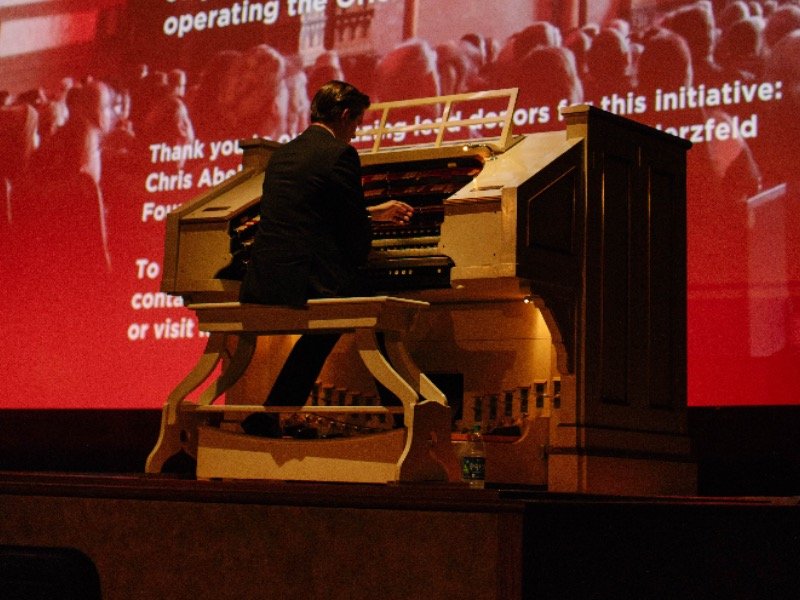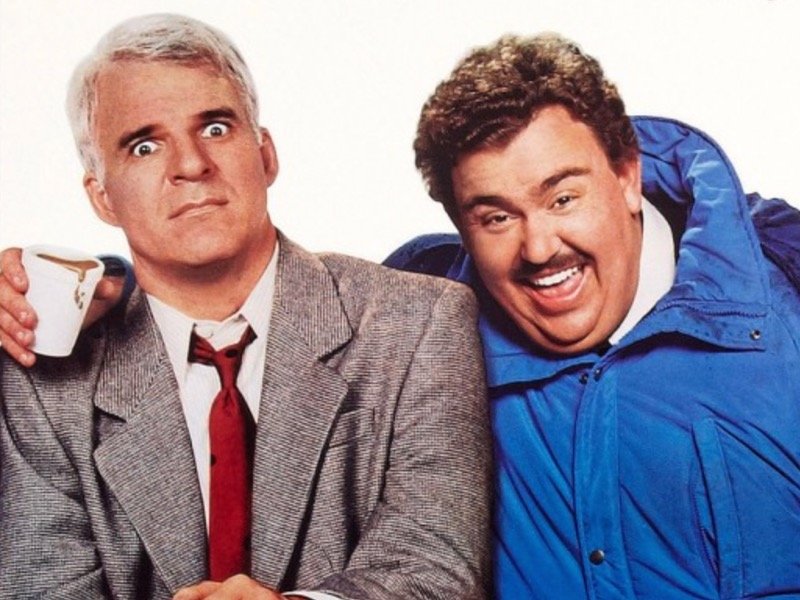If you saw a movie Saturday night at the Oriental, the biggest story wasn’t what you saw onscreen but what you heard before the film: the popular Kimball theatre organ, playing its final show in the iconic Milwaukee movie palace.
The current Oriental tenant, Landmark Theatres, does not own the organ. Instead, the instrument has played under the watchful eye of the Kimball Theatre Organ Society (KTOS), a group which owned and maintained the organ since 1979. Last year, however, the KTOS met and unanimously decided it would transfer ownership of the Kimball organ into new hands. A new owner soon acquired the organ before months later, in July 2017, the KTOS officially dissolved.
As a part of the ownership transition, the KTOS also voted to remove the Kimball organ from the Oriental Theatre – a process that started earlier this week as the instrument was disabled and, over the next few months, will be carefully moved into safe storage while the new owner determines its next destination.
"When the matter was discussed among the society, lots of options were discussed and lots of issues were discussed," said Simon Gledhill, a UK-based representative for the current owner – an individual who chooses to remain unnamed – as well as a KTOS member himself and a semi-professional organist who performed three times over the years on the Oriental’s Kimball organ. "I can’t tell you the detail of those … but I will say they were explored very thoroughly and the decision to transfer the ownership of the organ and for it to be removed from the theater took into account several different issues and was taken only after considering all of the options."
"The club is as sad as everybody else that the organ is coming out of the Oriental," he added, "but they genuinely believe that it is the right thing to happen – and so do I."
While the Kimball did not move into the Oriental Theatre until 1991, the organ is still deeply rooted in Milwaukee history. The instrument was first installed in the former Warner Grand Theatre, 212 W. Wisconsin Ave., for the venue’s opening in 1931, but when a divider was built in the middle of the space to split the cinema into two separate auditoriums in 1973, the Kimball was removed and donated to Milwaukee Public Schools to be added to the Milwaukee Trade & Technical High School’s (now Bradley Tech) auditorium. The organ, however, was deemed too large for the space, so the Kimball Theatre Organ Society was formed to protect and restore the instrument, as well as find it a new permanent home. And for more than a quarter of a century, that home was Oriental Theatre.
"Over the course of its existence in the Oriental, it almost doubled in size from its original specification using vintage Kimball parts and done in the spirit of what Kimball might have done originally in making an organ of that size," said Dean Rosko, vice president and membership chair of the Dairyland Theatre Organ Society (DTOS). "It was heard by probably hundreds of thousands of people at the Oriental over the years, and it means a lot to the Milwaukee community. It’s a Milwaukee original – and our first reaction is that really the organ should’ve stayed."
"If (the new owner) believes that removing a playing theater organ from an operating movie palace that wants an organ is in the best interest of the organ’s preservation," he added, "even though it defies logic, they’re entitled to do that."
"I fully appreciate that, for people who go to film shows at the Oriental and have enjoyed hearing the organ or organ enthusiasts, it’s a sad time," Gledhill said. "It’s sad for me too, because the organ sounded fantastic in the theater and I thoroughly enjoyed playing it there on the occasions when I played it. I wouldn’t have supported this decision, as a member of the society, if I didn’t think it was the right thing to do."
Thankfully, there is a happy ending on the horizon for the Oriental Theatre and its audiences thanks to the DTOS and Milwaukee Film, which will take over operation of the historic theater beginning July 1.
"When we learned of this information, the first thing we wanted to do was talk to the people who own it and work with them and find out what we could do or whether we could influence the decision," said Sara Meaney, chief marketing officer at Milwaukee Film. "Historically speaking, having an organ in the theater is an important part of the story of the Oriental Theatre. We believe very strongly in the specialness and uniqueness of Milwaukee’s Oriental Theatre, and as a result, we’re very interested in maintaining that ambiance and experience for all audiences."
According to Meaney, when attempts to reach out to the KTOS about the new owner and retaining the Kimball garnered no response, Milwaukee Film and the DTOS began the search for a new organ to take the Kimball’s place – a new organ with an even older connection to the legendary movie palace’s origins. The Kimball, after all, was actually the second organ to call the Oriental home. When the theater first opened in 1927, it actually featured a Barton organ – built in Oshkosh – before the instrument was removed in 1959.
"Barton was the fifth largest builder of theater organs in the era’s heyday, and Milwaukee once had more Barton organs than anything else – more than Wurlitzers or Kimballs or anything else – and now there’s not a single one left in Milwaukee," Rosko said. "So it would be neat to put a Barton back into the Oriental, wouldn’t it?"
There is no official agreement signed between Milwaukee Film and the DTOS, but both Meaney and Rosko are optimistic that they’ll be able to find an intact Barton soon (in fact, if you go to the DTOS website, the organization already owns a Barton organ) and that they’ll be able to move forward together sooner rather than later.
"The goal with all of this is just to create happy music," Rosko said. "That’s DTOS’s goal in all of this: We want to minimize the time the Oriental might be without an organ and certainly keep that image and those sounds in the ears of the people."
"A solution is on the way," added Meaney. "Our philosophy at Milwaukee Film is that the Oriental is a gem and a treasure, and maintaining that experience is a significant priority for us."
The fate of its former tuneful tenant, however, still remains a question mark – though Gledhill ensures Milwaukee that the Kimball will also get a happy ending befitting the Hollywood big screen.
"The person who has acquired the ownership is as committed to the organ’s future, safety and preservation as the KTOS was. There is absolutely no intention to break the organ up or to sell it for profit to someone else, who might subsequently break it up. The goal here is for the organ to be saved as an intact entity and installed somewhere else in due course.
"These guys are really passionate about this organ; if they weren’t, they wouldn’t have saved it in the first place. They’ve been fantastic guardians of it for many years … and the new owner is equally committed to ensuring the organ’s safety going forward."
As much as it is a gigantic cliché to say that one has always had a passion for film, Matt Mueller has always had a passion for film. Whether it was bringing in the latest movie reviews for his first grade show-and-tell or writing film reviews for the St. Norbert College Times as a high school student, Matt is way too obsessed with movies for his own good.
When he's not writing about the latest blockbuster or talking much too glowingly about "Piranha 3D," Matt can probably be found watching literally any sport (minus cricket) or working at - get this - a local movie theater. Or watching a movie. Yeah, he's probably watching a movie.







